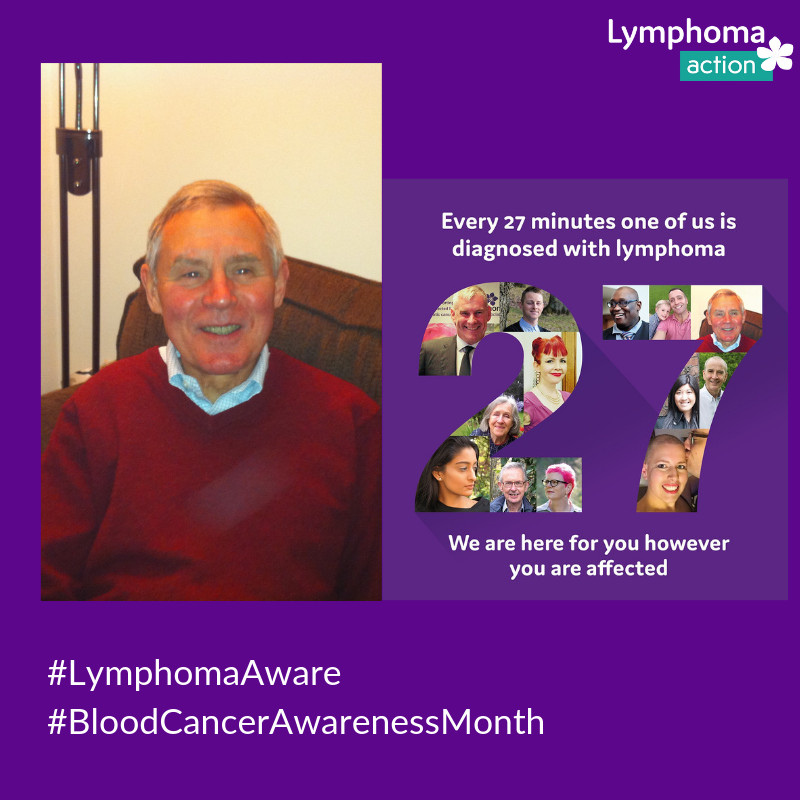Malcolm
Malcolm was diagnosed with follicular lymphoma in 2007, aged 59. After treatment, he found the support network offered by Lymphoma Action invaluable in building his life back. Malcolm is sharing his story as part of our 2019 Blood Cancer Awareness Month campaign.

'I remember feeling rubbish but I put that down to working in a busy retail environment. It was Christmas time and work was stressful. It wasn’t until April the following year that I decided I ought to look into it. I was feeling more and more tired and I suddenly experienced a sharp pain in my right rib cage. The doctor referred me for ultrasound – they were concerned about my kidney, liver and abdominal area – I even had an endoscopy, all of which came back clear.
I was playing a lot of badminton at the time, so I queried whether the pain could possibly be skeletal. The specialists suggested an MRI scan to check. The results sent me into a panic and everything seemed to happen very quickly from this point. The MRI showed up tumours in my spine; a bone marrow biopsy and CT scan confirmed it was follicular lymphoma.
I had no idea what follicular lymphoma was. I was in proper panic mode - fearful and horrified. My wife, Brenda, found out as much information as she could from Lymphoma Action, and in fact we were given one of the charity’s leaflets at the hospital when I was diagnosed. But it was really hard for me to take in information at that point. Your brain’s still in shock I think. I began radiotherapy almost immediately, then had R-CVP chemotherapy from September 2007 until February 2008.
I was reasonably fit and very fortunate in that I coped pretty well with the treatment - no terrible side effects. Physically I was doing fine - but psychologically I found the whole experience immensely stressful. I became clinically depressed and agoraphobic. My work was brilliant; I was able to return on reduced hours. But it was a huge effort to force myself to get there, although on reflection I think it did me good to focus on something else for a few hours.
What also helped me build my life back was the support network offered by Lymphoma Action. Not just accessing their support for my own benefit, but becoming a part of that network myself and offering support to others. When I was diagnosed, there were no Lymphoma Action support groups on my doorstep, although I did attend one in north London. I found it so helpful to talk to other people who had been on a similar journey with their lymphoma. Some had come out the other side ‘cured’; others were still living with their lymphoma but learning to manage it - often thanks to coping strategies they’d learnt from others at the support group.
When I heard that the charity was launching a support group closer to home for me, I volunteered to coordinate it. I’d seen the benefits first-hand and I wanted to make sure more people could access those benefits. I also trained to become a volunteer buddy with Lymphoma Action, offering telephone support for other people diagnosed with lymphoma who needed the time and space to talk things through at their own pace. I think peer support is so crucial for people affected by conditions that are with you long term. Even if your lymphoma’s in remission like mine is, it can still be hard to deal with the psychological side of that. It’s comforting and reassuring to realise you’re not alone; that others have been there, felt it and come out the other side.'
Find out more about Blood Cancer Awareness Month and how you can get involved
